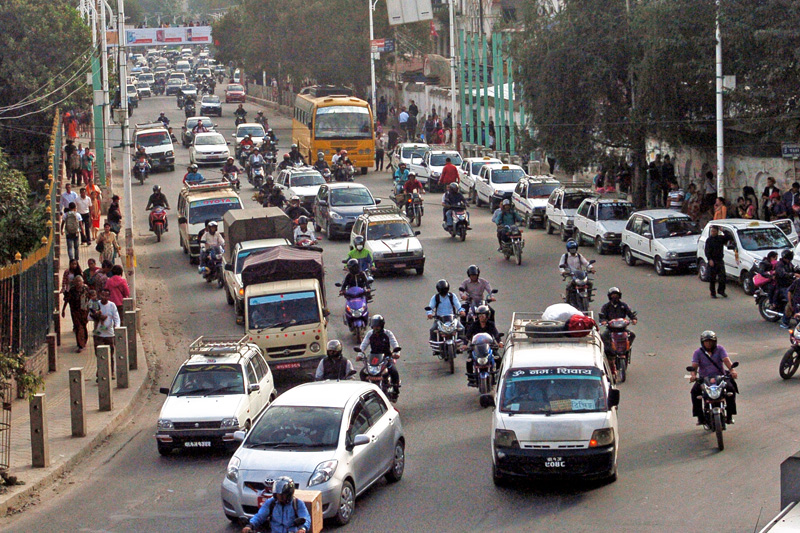‘Better transport bedrock of economic growth’
Kathmandu, November 28
Sustainable transport forms the bedrock of sustainable economic development and social progress, over and above its immense direct contribution to poverty reduction and delivery of vital services.
Secretary at the Ministry of Physical Infrastructure and Transport Dhana Bahadur Tamang said so while addressing the Plenary Session of the Global Sustainable Transport Conference held in Ashkhabad, Turkmenistan on 27 November 2016.
Tamang is leading the Nepali delegation to the conference.
He said the conference on sustainable transport organised by the United Nations will have significant impact on the implementation of the 2030 Agenda on Sustainable Development.
“A number of Sustainable Development Goals are directly or indirectly linked to sustainable transport. The issues of road safety, importance of resilient infrastructure, access to transport have been well incorporated under respective SDGs.
Also, numerous cross-cutting sectors of the SDGs have a direct bearing on the development of sustainable transport,” Secretary Tamang stated.
Stating that Nepal has commenced the integration of SDGs into the national development plan, he said, “In that backdrop and as a least developed, land-locked and a high-cost mountainous economy, due mainly to the transport challenges it has to overcome, Nepal attached particular importance to this conference.
We also appreciate the work of the UN towards making it a genuine success for countries like Nepal as well.”
Sustainable development without peace and stability is beyond imagination.
A country that underwent a decade-long conflict has now embarked upon the path to peace and development. Last year, a democratic and people-centric constitution was promulgated through the democratic and participatory process, concluding the nationally-owned peace process.
The next step is to institutionalise the hard-earned peace, which is possible through the rapid socioeconomic development.
The total length of the roads of strategic importance in Nepal has reached 15,000 kms, which provides more than 90 per cent of total transport services.
The number of vehicles has increased to 2.3 million, which is extremely high given the carrying capacity. At the same time, since two-wheelers dominate the means of road transport the number of road accidents has escalated.
Air transport accounts for about 8 per cent of the transportation services, while railway development has not yet gained momentum. Despite some good potentials, water transport is still at the exploratory phase.
Nepal has encouraged private investments, nationally as well as internationally, for transport related infrastructure building.
There exists a huge gap between development needs and resources available. The countries in special situation are in need of an enhanced level of support and facilitation from the international community.
Nepal calls for the fulfilment of commitments made under global development agendas. Cross-border transit facility for the landlocked countries has to be made more efficient and effective under bilateral, regional and multilateral frameworks.
There is equally important need for multilateral trading systems and international financial institutions to accord higher priorities to vulnerable countries.






